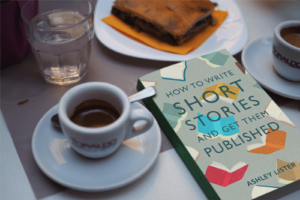By Ashley Lister
“A month’s worth of unplanned and directionless writing can save you hours on plotting.”
Anon
I’m not sure who is responsible for the quote above, but I have to admit it has a terrible ring of truth to it. My PhD thesis focused on the intricacies of plotting. My latest non-fiction book, How to Write Short Stories and Get Them Published, has a substantial chapter that looks at approaches to plotting. My most successful stories have been plotted meticulously before I got into the process of writing them.
And yet, still, I will often try to coast my way past the plotting part of the process as though it’s simply a matter of sitting in front of the keyboard and hammering out words until everything falls into place.
Before I continue, I want to say a brief word about the notion of plotters and pantsers. There are some people who believe that writers fall into these two categories when it comes to writing: with the plotters making extensive notes before beginning, so that the journey of their story is always known to them, and the pantsers (so-called because they write by the seat of their pants) who simply write until the story concludes, without much of a preconceived idea of where the story is going. Whilst I’m not going to argue against the idea of anyone identifying as a plotter or pantser, I do believe that most of us writers inhabit the middle ground of these dynamics. Some stories come to us in such a way that there is no need to map out the structure. Similarly, some stories benefit from mapping so that their nuances and complexities aren’t lost in the white-hot rush of getting the words on the page. And then, there are stories that can be plotted, and still manage to branch off into surprising new directions as they are being written.
I mention all of this because I’ve spent the past month busily not writing a novel. Each time I try to sit down and plot the story, I tell myself that plotting is the antithesis of creativity and this novel deserves better. Each time I try to sit down and explore where the next scene is going by simply writing it, I find myself tying up loose ends early or opening subplots that look set to take over the entire narrative.
All of which is my way of saying enough is enough. I’ve spent the last month trying to write this story without giving plotting or structure any of the credence it so justly deserves. I’m now going to spend a week plotting and planning and I shall see how that pans out. Hopefully, having explored so many ideas with the pantser approach, I should now have sufficient material to plot something exceptional.
I shall let you know how this adventure transpires next month.
Ash








